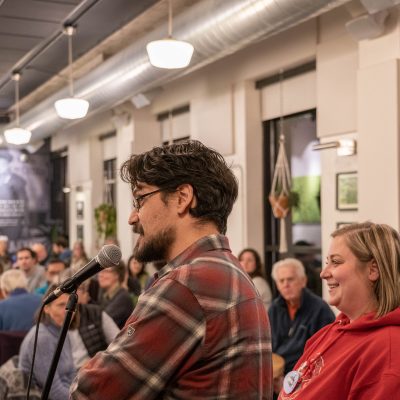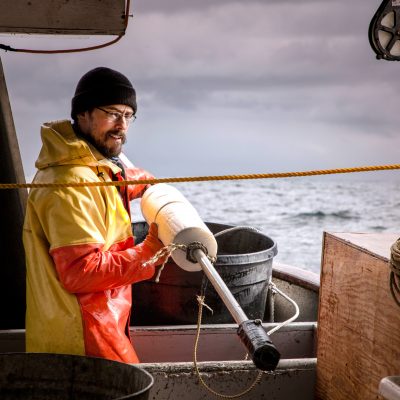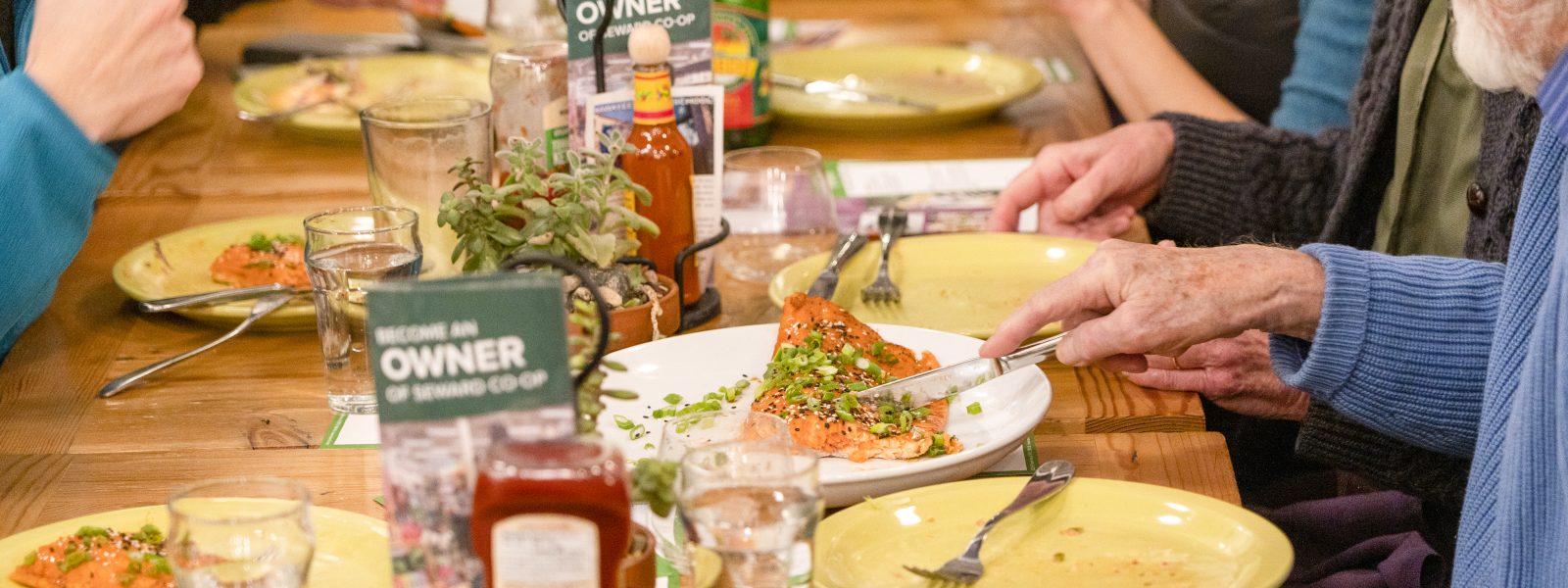Captain’s Diner Recap
Originally published in our 2020 Spring Sprout! about our Captain’s Dinner held in January 2020.

Seward Co-op was thrilled to host a dinner in celebration of cooperation among cooperatives with Community Foods guest, Seafood Producers Cooperative (SPC) in January. Diners enjoyed a delicious tasting menu of high-quality Alaskan seafood and heard several fishing stories of the high stormy seas from SPC fisherpeople. The Seward Co-op community is now a part of SPC’s story in Minneapolis. Their commitment to sustainable harvesting practices helps to preserve reliability and consistency of high-quality seafood for years to come. Supporting this small-scale, sustainable, cooperative with your purchases is an investment in cooperative values.
For 75 years, SPC’s fishing fleets have employed the most sustainable fishing practice available—traditional hook-and-line fishing. Alaskan fish and seafood is harvested in compliance with sustainable standards—known as Science-Based Management—set by the North Pacific Observer Program. “[The] North Pacific Observer Program plays a vital role in the conservation and management of the Bering Sea, Aleutian Islands, and Gulf of Alaska groundfish and halibut fisheries,” explained SPC staff. Observers manage harvests to ensure the conservation of individual fish species and their ecosystems’ viability to promote growth and reproduction. Without this oversight, many fisheries over harvest, leading to a destruction of ecosystems.
 Local farmers are not the only ones struggling with climate change—fisherpeople experience challenges at sea as well. “There are open ocean variables as well as inland issues that are rapidly coming into play,” according to SPC staff. One major effect of global warming on the open ocean ecosystem is rising acidity levels, stunting the growth of various species, making them incapable of reaching reproductive age. As for inland ecosystems, SPC staff commented that they have witnessed ice fields melting faster than the fish can adapt. The melting of ice fields leads to species’ inability to reproduce at a rate to support a sustainable harvest. In this context, it is good to know that SPC’s fish harvest is one of the most sustainable in the world.
Local farmers are not the only ones struggling with climate change—fisherpeople experience challenges at sea as well. “There are open ocean variables as well as inland issues that are rapidly coming into play,” according to SPC staff. One major effect of global warming on the open ocean ecosystem is rising acidity levels, stunting the growth of various species, making them incapable of reaching reproductive age. As for inland ecosystems, SPC staff commented that they have witnessed ice fields melting faster than the fish can adapt. The melting of ice fields leads to species’ inability to reproduce at a rate to support a sustainable harvest. In this context, it is good to know that SPC’s fish harvest is one of the most sustainable in the world.
